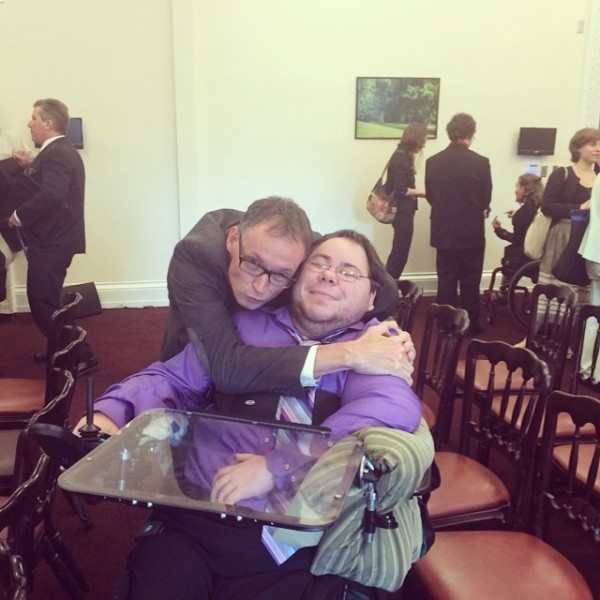In 2014, President Obama and his administration did something for LGBT disabled Americans that had never been done before. He acknowledged we existed. This may not seem like a big deal to many people, but to the millions of disabled LGBT Americans who have long been denied existence, even within the greater LGBT and disability communities, such acknowledgement was groundbreaking.
< a href="http://www.domevansofficial.com/wp-content/uploads/2014/08/LawrenceCarterLongDom.jpg" rel="attachment wp-att-1229">
I was there, at the White House in June 2014, when President Obama’s administration held the first forum on LGBT and disability issues. It was very empowering to be amongst my community, a community that has struggled for acceptance, tolerance, and visibility. In truth many of us have fought for acceptance, tolerance, and visibility in movements/communities that have long discriminated against us, in spite of those communities being heavily discriminated against themselves.
President Obama has done more for LGBT rights than any other president, to date. Granted, that is not hard, given the fact that none of the presidents before him have done much, if anything at all, to advance the rights of LGBT Americans. Of course, his validation of queer crip (often called quip) culture was not highly publicized (not for my standards!), though it should have been hailed by every news station across the country.
Despite being the world’s largest minority group, disabled Americans are often the most invisible minority. Our stories do not get the same level of press, unless they are meant to evoke pity, fear, or inspiration. The thing is, society barely acknowledges disabled people as human beings, let alone individuals with unique gender identities and sexualities. To have the most powerful person in the country not only acknowledge this, but also celebrate this, is not only exhilarating, it is a huge step in the right direction towards addressing the issues that are unique to the millions of LGBT disabled people, around the globe.
The truth is, for decades quips have been denied access to the LGBT movement and greater community, primarily through exclusion and access barriers. This is a barrier I’ve been fighting since I entered the LGBT community, and started fighting for LGBTQ rights in the 1990s. The disability community is often just as exclusionary against LGBT people within the greater disability community. I have been told numerous times the issues I’ve raised that affect LGBT disabled people, are not disability issues. We are expected to keep these issues to ourselves. Queer and trans spaces have long denied access to those with disabilities, and disabled spaces have discriminated against including LGBT people. When LGBT protests fail to accommodate wheelchair accessibility, they are ignoring the fact that LGBT people can be disabled. When disabled spaces fail to allow LGBT people to participate to the same level as other disabled people, they are using tactics that have actually been used against disabled communities by greater society to keep disabled people from active participation in public life within said society.
Why already marginalized communities seek to discriminate against other marginalized communities is beyond me, but it is real, and it needs to be addressed within these communities.It helps when political leaders are making it clear that these issues exist, and they need to be addressed That is what Pres. Obama did for us, and while it may not remove the oppression or the lack of inclusion we face on a daily basis, it certainly sends the message that LGBT disabled people have worth, we matter, and we exist.
So as they say, “Thanks Obama!” and this time we really mean that.
*It should be noted that this event was in large part a result of the work of the National Council on Disability.

Comments